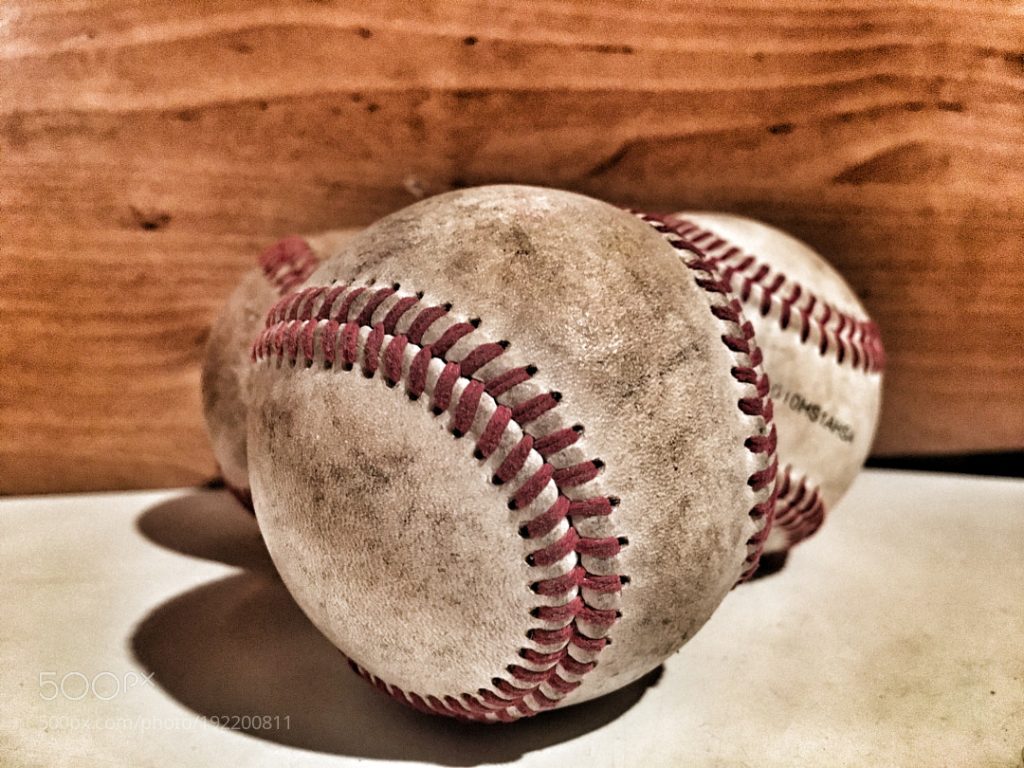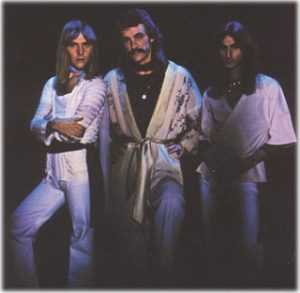Moses “Fleet” Walker was born on October 7, 1857 in Mount Pleasant, Ohio. His parents were Reverend Moses W. Walker, M.D. and Caroline Maria Simpson. Moses was the fifth oldest out of seven children. His family nicknamed him “Fleet” growing up in order to distinguish him from his father.1 Walker and the rest of his family were not considered an ordinary African American family. Due to his father being both a reverend and a physician, the Walkers were considered “free and educated blacks, with upper middle class economic advantages.”2 This would become one of the key reasons why Fleet never really witnessed racism in his childhood years.
The segregation of blacks from whites was the law in the former Confederate States. However, Walker grew up in Ohio, where segregation was practiced more informally. African American people were not allowed certain jobs and were not allowed to live in certain areas. However, Moses did not witness much of this growing up, because of his fathers’ status in society.3
Since Fleets’ father was a physician, he did not have to work growing up. This allowed him time to focus on school and on playing baseball in his free time. Fleet was a natural athlete and very intelligent. In school, he was expected to keep up his good grades and attend every day. He was introduced to baseball when he moved to Steubenville by a group of veterans from the Civil War period, who had actually helped Abner Doubleday in forming the game of baseball.4

When Fleet was ten years old, the National Association of Base Ball Players was created to form the very first baseball league. On December 11, 1867, 237 delegates met in Philadelphia to propose rules, salaries, and other considerations for their league.5 One of the major issues they had to deal with was whether they would allow multiple races into the league. Since this league was created in the North, they believed that the color line was necessary in order to have Southern States willing to join in on the league as well. Therefore, in the first set of rules for the league, their ruling read:
It is not presumed by your committee that any club who has applied are composed of persons of color or any portion of them and the recommendations of your committee in your report are based upon this view and they unanimously report against the admission of any club which may be composed of one of none colored person.6
Four years after this committee was created it was replaced by the National Association of Professional Baseball Players. They took out this rule and simply stated that it was a “gentlemen’s agreement” that blacks were not allowed in the league. As a child, Fleet was unaware that African Americans were not allowed in the League, as this became his childhood dream to turn baseball into a career.7
Growing up, Fleet played in integrated baseball teams, and he played the usual pick-up games in the neighborhood with his friends. When Fleet turned twenty in 1878, he and his family moved to Oberlin, Ohio due to a job promotion his father received. Here Moses started college at Oberlin College.8 When he started, there was no collegiate sports at Oberlin. However, in Fleet’s third year at Oberlin, it became the very first school to form a collegiate baseball program. Fleet’s first season was a success, and he earned recognition as “one of the best all-around college athletes in the land.”9 After his first season, Fleet left Oberlin to go to the University of Michigan to pursue a law degree and continue his baseball career there as a catcher. At Michigan, he and his brother both played for the team, but Fleet did exceptionally well. Fleet went on to play two years at the University of Michigan. He never ended up graduating because, at age twenty-five, Fleet was offered a professional baseball contract to play for the Toledo Baseball Club.10 At this time, in 1884, the league consisted of eight clubs in the Northwestern League. He accepted the contract and was the second player drafted into the league. Fleet made his major-league debut on May 5, 1884, and did outstanding in his first season. He led the team to win the very first league championship. With the creation of the league, they started to play teams from other parts of the country, and came up with what is now known as the World Series. Fleet and the rest of the Toledo Baseball Club were supposed to play the Chicago White Stockings for the championship. However, the manager of the White Stockings Adrian Anson refused to play if Fleet walked onto the field. This was the very first time Walker experienced racism in the Major Leagues.

Fleet was a catcher, and because he was African American, he was not allowed to catch with a glove, face mask, or chest protector. Reports said that Fleet’s hands were always blistered and bloody after games.11 This was one of many obstacles Fleet faced due to his race. Throughout his baseball career, Fleet was the target of fan abuse and from opposing players. Fans would throw food and other items, spit, and say harsh things to him while he would play. He also received threats from certain baseball clubs saying that if Fleet stepped foot in the stadium with a uniform on, men would be there ready to mob him. Due to the constant injuries from playing with no gear, Fleet never ended up playing in these cities.12
Although Fleet led the leagues, after having so many injuries, the Toledo Baseball Club released Walker in 1885. He then moved on to play for a minor league team in Cleveland. This team soon became banned because they broke the “blue law” of playing games on Sundays. Walker then moved to play in Waterbury, Connecticut in the Eastern Leagues. After playing one season, he moved again due to teammates not being cooperative with Fleet because of his race, to a team in Newark, New Jersey.13 On this team, he was signed with another African American player named George Stoney. After playing a season of sixty-nine games together, many fans and workers of the league started to make claims that blacks should be allowed to play everywhere. “They make the teams stronger and they bring in more business.”14 This was not the thinking of everyone, however, as the racism against Fleet continued. In a game against Chicago, the opposing players all walked off the field, leaving the game when they saw Fleet and Stoney warming up to play. Also, some of Fleet’s white teammates refused to take team photos if Fleet and Stoney were going to be in them. All the white pitchers on this team never listened to Fleet when he called pitches and threw whatever they wanted just to make Fleet look bad. This became a bit overwhelming, and many coaches in the league began to push to ban African Americans; and in 1885, they were all moved to an international league club in Syracuse. Fleet became the last known African American to play for the league in Syracuse. Blacks were no longer allowed in Major league clubs and had to be recruited into a minor-league team. Fleet was allowed to play for a minor-league club in Oconto, Wisconsin until his retirement in 1891.

Once retired, Fleet decided to buy a house in Syracuse to try and find work. Although he was very well educated, well known, and the son of a physician, the only work he could find was as a railroad worker. This really wasn’t how Fleet envisioned living out his life after baseball, but it was the only choice he had. In Syracuse, Fleet still experienced racism, both at work and around his neighborhood. On April 9, 1891, Fleet was having a drink after work in his neighborhood, when a white man approached him asking what he was doing in such a nice neighborhood and why he wasn’t out working somewhere. When Fleet ignored the man, he threw a rock at him and lunged at Fleet in attempt to assault him. In self-defense Fleet stabbed the man, killing him. Two months later all charges were dropped against Fleet, and he then moved back to Steubenville, Ohio.15 He then spent the remainder of his life managing an opera house with his brother before passing away on May 11, 1924 at the age of sixty-six.16
Fleet lived out the rest of his life with his family and away from a baseball field. Although Fleet is the very first African American baseball player and catcher, he is not really recognized as such because he played when the leagues were first forming in a time now called the “dead period.” This is the reason why Jackie Robinson is said to be the first African American in what is now called “modern baseball.” However, Fleet has been recognized in the Hall of Fame for his efforts in starting the league for players today. Moses “Fleet” Walker is very strong to have played as long as he did despite the racism he experienced throughout his career. He paved the way for players like Jackie Robinson and all that came after him to play in Major League Baseball.
- David W. Zang, Fleet Walker’s divided heart: The life of Baseball’s First Black Major Leaguer (Lincoln: University of Nebraska Press, 1998), 169. ↵
- Nudie E. Williams, “Footnote to Trivia: Moses Fleetwood Walker and the All-American Dream,” Journal of American Culture vol.11 (1988): 65. ↵
- Edward R. Lee, “Moses Fleetwood Walker,” Blackfax vol.9 (1999): 37. ↵
- Nudie E. Williams, “Footnote to Trivia: Moses Fleetwood Walker and the All-American Dream,” Journal of American Culture vol.11 (1988): 66. ↵
- Nudie E. Williams, “Footnote to Trivia: Moses Fleetwood Walker and the All-American Dream,” Journal of American Culture vol.11 (1988): 65-72. ↵
- Nudie E. Williams, “Footnote to Trivia: Moses Fleetwood Walker and the All-American Dream,” Journal of American Culture (2001): 65-72. ↵
- Nudie E. Williams, “Footnote to Trivia: Moses Fleetwood Walker and the All-American Dream,” Journal of American Culture vol.11 (1988): 66. ↵
- David W. Zang, Fleet Walker’s divided heart: The life of Baseball’s First Black Major Leaguer (Lincoln: University of Nebraska Press, 1998), 169. ↵
- Nudie E. Williams, “Footnote to Trivia: Moses Fleetwood Walker and the All-American Dream,” Journal of American Culture vol.11 (1988): 67. ↵
- Edward R. Lee, “Moses Fleetwood Walker,” Blackfax vol.9 (1999): 37. ↵
- Nudie E. Williams, “Footnote to Trivia: Moses Fleetwood Walker and the All-American Dream,” Journal of American Culture vol.11 (1988): 67. ↵
- Nudie E. Williams, “Footnote to Trivia: Moses Fleetwood Walker and the All-American Dream,” Journal of American Culture vol.11 (1988): 67. ↵
- David W. Zang, Fleet Walker’s divided heart: The life of Baseball’s First Black Major Leaguer (Lincoln: University of Nebraska Press, 1998), 169. ↵
- Nudie E. Williams, “Footnote to Trivia: Moses Fleetwood Walker and the All-American Dream,” Journal of American Culture vol.11 (1988): 68. ↵
- Edward R. Lee, “Moses Fleetwood Walker,” Blackfax vol.9 (1999): 37. ↵
- David W. Zang, Fleet Walker’s divided heart: The life of Baseball’s First Black Major Leaguer (Lincoln: University of Nebraska Press, 1998), 169. ↵



107 comments
Abbey Stiffler
Before this article, I still thought Jackie Robinson was the first African American baseball player. I found it interesting that he did not experience any racism until he was older and had other opportunities that many African American young men did not get the chance to participate in. I wonder how far he would have gotten if his dad was not so successful. His dedication to his sport and even playing with his bare hands show the effect sports can have on people’s lives.
Danielle Rangel
This article does an amazing job of telling the story of Moses “Fleet” Walker and his passion, baseball. It is truly unfortunate to know that Fleet was denied due to the color of his skin. Despite being in the upper middle class he was still denied his passion even though he had the status and the talent. I think that Fleet and his story should be told more often because his story demonstrates the racism seen in sports at that time.
Maggie Trujillo
I selected this article because I had never heard of Fleet Walker being the first African American catcher. Just as this article mentioned, I was aware of Jackie Robinson and his status in baseball, but this article was intriguing to give Fleet Walker the credit he deserved to bring baseball forward for African Americans – such as Jackie Robinson. I was shocked that just because Fleet was African American that he was he was not allowed to catch with a glove, face mask, or chest protector. I cannot fathom the pain that he must have gone through as a catcher without any of the standard catching equipment. This article did a good job of capturing the life of Fleet and what he endured to play baseball as an African American player in the late 1800’s.
Nnamdi Onwuzurike
The dedication and willpower that Fleet had to play baseball with no protective gear is unbelievable. I believe I had a similar childhood to Fleet seeing as I grew up in Nigeria where racism isn’t really an issue because most of the people back home are black folk. I can imagine how confusing it must have been to be hated and pushed towards failure repeatedly just because of the colour of your skin out of the blue. I believe this article properly informs us of the struggles of black baseball players before the modern era where Jackie Robinson was able to shine.
Veronica Lopez
Loved the article! Fleet’s story is one of many stories that hasn’t been told. I personally have never heard of him which made me want to know more about him and the importance he has in history. Your article is a great example of the hardships of segregation and how African-Americans dealt with it. By the way, I found it interesting that Fleet didn’t experience racism till he was older.
Cecilia Schneider
This article takes an interesting turn from hopeful to heartbreaking quickly, however, I cannot say that it was unexpected considering the segregation that was still present during this time. It begins hopeful as he has faith in his dream to play professionally, and then he gets the chance to fulfill this. However, it is a bittersweet victory because while he gets to live his dream, it is made more of a nightmare. The thought of the absence of padding and a face mask at first did not strike me as that surprising because sports rarely had proper protection during their first stages. But the absence of the glove as well is really jaw-dropping. If a professional baseball player had done what Fleet had it is hard to say whether he would ever be able to play again because of the dangerous injuries.
Velma Castellanos
I have never heard about Fleet until now but I would have liked to know about him a lot sooner. I love baseball and I always believed that Jackie Robinson was the first African American baseball player, not Fleet. He has such an impact because he did pave the way for future players to come in as you have mentioned. I congratulate him for steeping out in a mature manner because eventually racism does get to you. Overall, I loved reading this article because like I said before, I am a huge baseball fan.
Charles Lares
This article was great. It was amazing to read about a young man who didn’t let his race stop him from doing something that he loved. He continued to push himself and work towards becoming perfect. Although segregation was important, he knew he was going to change the sport for many other African Americans and he did. It’s always great to see someone push themselves beyond the limits to become game changers.
Andrew Molina
I love this article because not only am I a big baseball fan, but I was a catcher for almost my entire baseball career, so this story seems to resinate and sit really well with me, it seems to be somewhat relatable for me. But shockingly, I never really heard of this story about Fleet, I was always taught growing up that Jackie Robinson was the first African American and the first player to break the color barrier so this was really interesting and eye opening to me. This article was very well written, showing a man who’s love and passion for the game seemed to be ripped from his simply because of his skin color in almost in a blink of an eye. I never knew that he endured all that racism and that he was a pioneer of the sport for African Americans and a true spokesman for all minorities who love the game. It was awesome to learn how he paved the way for countless others who came after him.
Guadalupe Altamira
Reading the start of baseball for a African American was very interesting and seeing how it all played out during the end was disappointing but very informative. Facing racism for doing something as playing baseball was already terrible enough but even the people refusing to play because of skin color were downright awful. He was a good catcher and people weren’t able to see past his skin color. Fleet even as he retired and proceeded to live a normal life was affected by racsim. The article really hits the reader with the different feeling and its has great timeline.